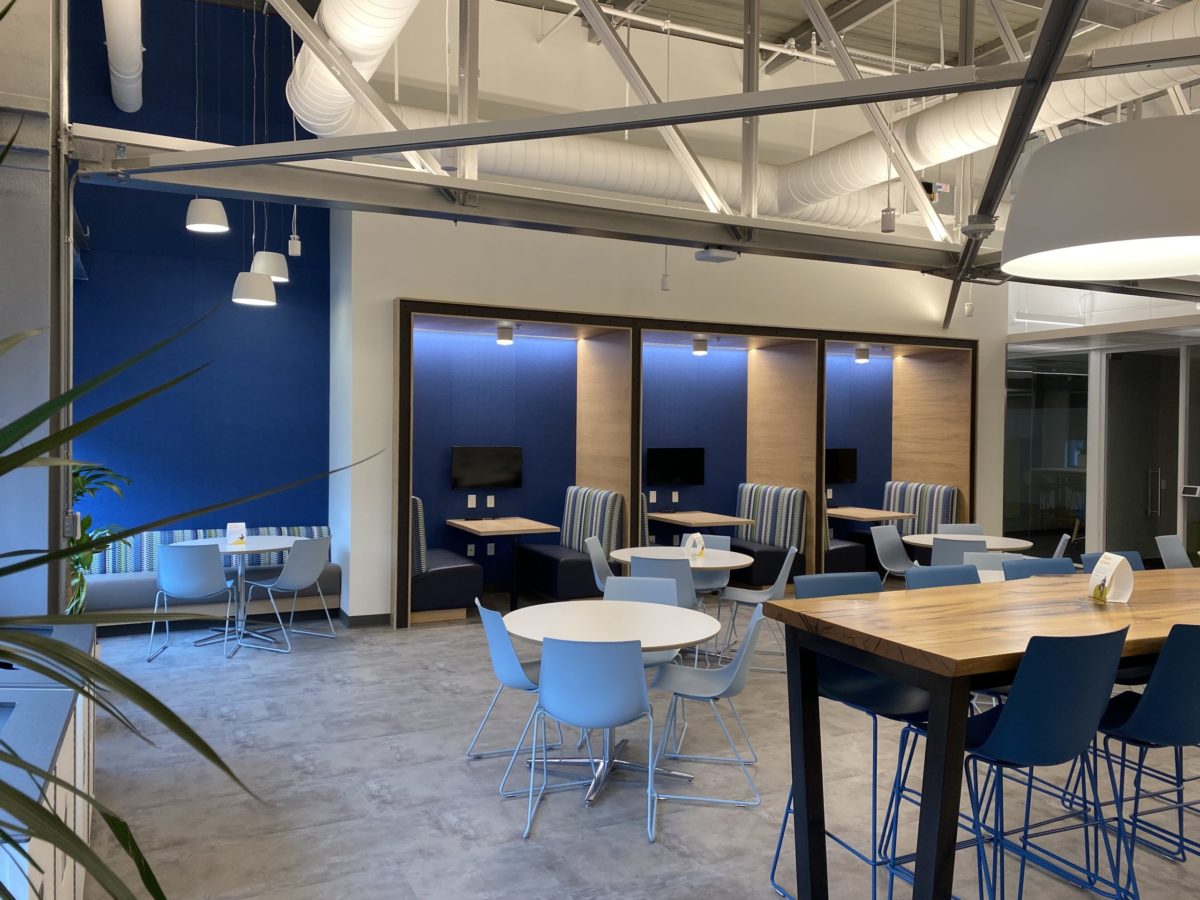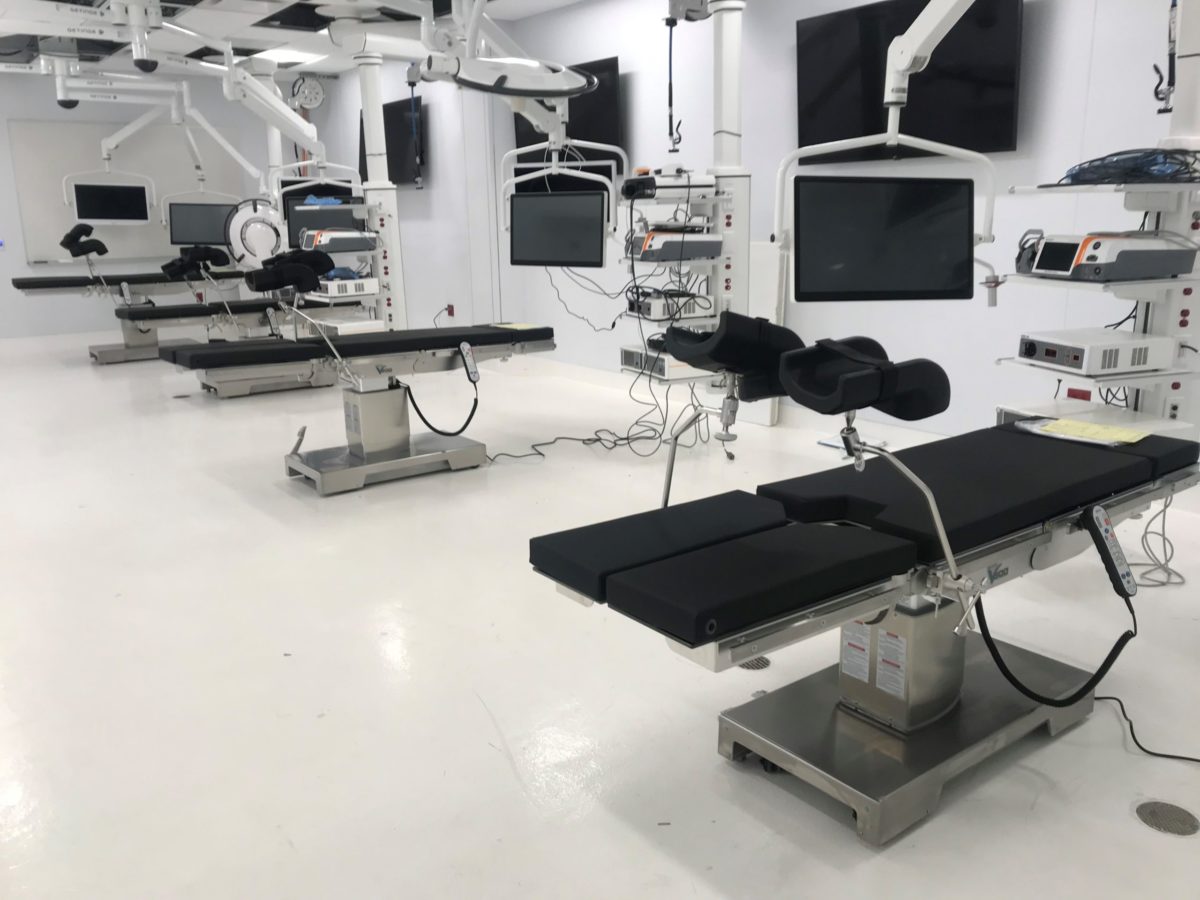Pittsburgh robotics experts have a new opportunity to advance disruptive technology — and it’s not for self-driving cars.
Smith+Nephew, a multinational medical equipment and technology manufacturing company, expanded its Pittsburgh presence today with the opening of a new 65,000-square-foot robotics research and design center at The Stacks at 3 Crossings in the Strip District’s Robotics Row. Headquartered in London, Smith+Nephew now has almost 7,000 U.S.-based employees, and will focus on the development of robotics-assisted surgery technology at its new center in Pittsburgh.
Originally slated for a March 2020 opening before the pandemic, the center is an expansion of Smith+Nephew’s existing presence in the city, which stemmed from the acquisition of Carnegie Mellon University spinoff Blue Belt Technologies in early 2016 for $275 million. The initial announcement for the deal said that Blue Belt’s robotics system to assist knee replacement surgeries would position Smith+Nephew for a wide range of robotics-assisted surgery tech in orthopedics going forward.
Since the acquisition, the number of local employees for the company has more than tripled, a communications representative for the company said. The new center will host a total of around 200 team members in a wide range of technical roles, including software development engineers, electrical engineers, mechanical engineers, artificial intelligence engineers and cybersecurity experts.

Smith+Nephew hopes to tap into Pittsburgh’s medical expertise as well.
“We’re always looking to build our capabilities in our key sites, and Pittsburgh is one of our top three to four sites within the United States,” said Vasant Padmanabhan, the company’s president of research and development for robotics. “So given the number of academic institutions, given our partnerships with UPMC and other hospitals in the area, we’re always looking to grow our life sciences area as well.”
The new center includes a large amount of open and collaborative workspace, as well as equipment and other resources that can help promote new innovation in robotics-assisted surgery tech.
“We think of this as a world class innovation center, and a place where medical education and training takes place,” said Padmanabhan.
Within the facility will be mock operating rooms that allow Smith+Nephew engineers to observe the workflow of surgeons in real time, as well as areas for surgeons and other medical professionals to go through training of new technology.
Smith+Nephew’s emphasis on collaboration in the workplace will extend beyond the center as well, Padmanabhan added. Though he couldn’t share details yet, he mentioned that the company has plans to partner with others in the area who can offer even more expertise on robotics and its applications within the life sciences.

The announcement comes after companies in robotics or robotics-adjacent industries continue to open offices or cement their headquarters in Pittsburgh. Most recently, autonomous vehicle company Aurora — which has a vote on its SPAC deal coming up next week — announced its full headquarters here, while competitor Waymo also opened a location here. The overlap of robotics with life sciences comes at an exciting time for that sector in Pittsburgh too, on the tails of a successful IPO from Cognition Therapeutics and an acquisition of Cernostics that will take the company public and grow its presence here.
All of these announcements and more will continue to ground valuable talent in Pittsburgh, at a time when many companies are still grappling with how to emerge from the remote work habits of the pandemic.
While acquisition deals with large companies can sometimes result in office closure and relocation for the smaller company, Padmanabhan said that Smith+Nephew was interested in not only keeping a talent base in Pittsburgh with its acquisition of Blue Belt, but expanding on it, too. Beyond the expertise Blue Belt supplied, the talent available from local universities and the opportunity for collaboration with institutions like UPMC also appealed to the company.
“Pittsburgh is becoming very vibrant in these two economic sectors — healthcare and robotics,” Padmanabhan continued. “So as I’m answering your question, it feels like why would you go anyplace else, when you have a lot of these trends lining up really nicely for our company strategy?”







